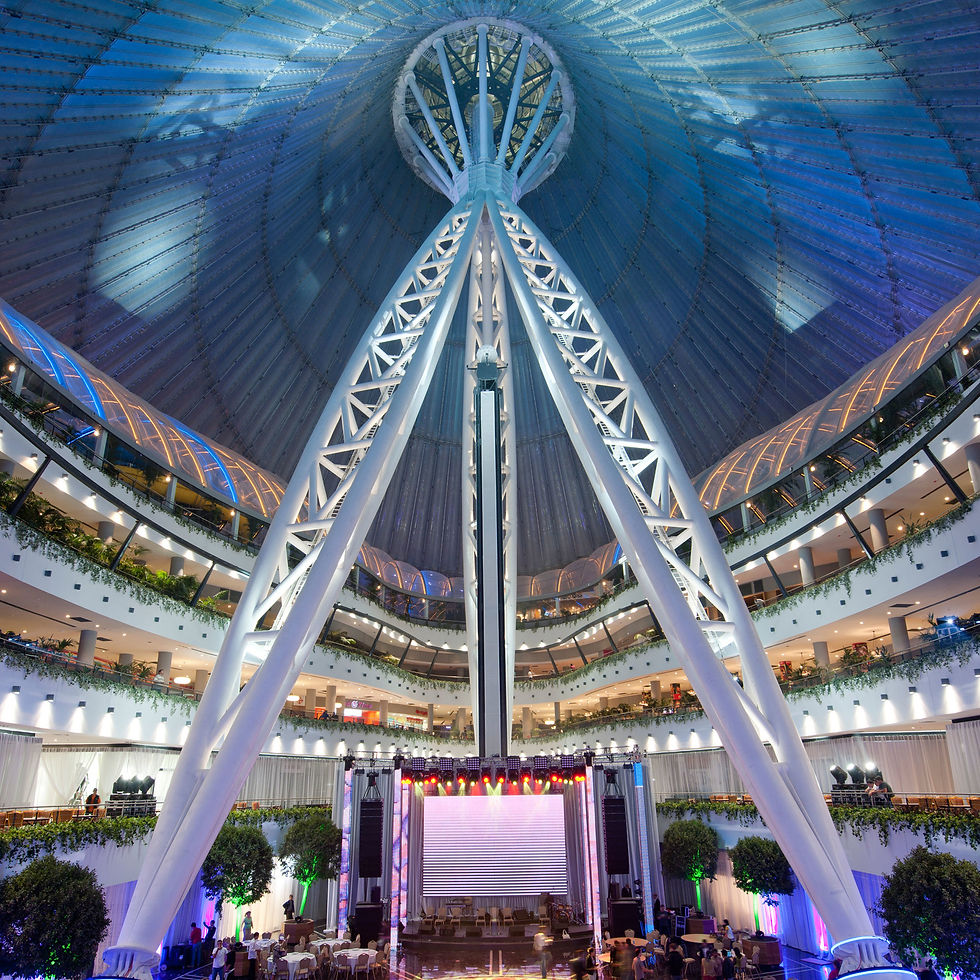top of page
© ZHIG

Please Wait


Khan Shatyr Entertainment Center (1).jfif

Khan Shatyr Entertainment Center (2).jfif

Khan Shatyr Entertainment Center (3).jfif
1/2
0
Product
6.0K
Views
0
0
Please Log in
Khan Shatyr Entertainment Center
Khan Shatyr Entertainment Center, Turan Ave 37, Astana 020000, Kazakhstan
the architects
Description:
Astana, the new capital of Kazakhstan, lies in an austere eastern landscape with an inhospitable climate that can generate temperatures of -35 degrees Celsius in winter and +35 degrees in summer. The Khan Shatyr Entertainment Center is designed to provide the city with a range of civic, cultural and social amenities all sheltered within a climatic envelope - 'a world within' - that offers a comfortable microclimate all year round, whatever the weather. The building's tented structure has great resonance in Kazakh history as the tent is a traditional nomadic building form - Khan Shatyr translates as 'the Tent of the Khan'.
Located at the northern end of the city's formal axis, the masted structure soars 150 metres from a 200 x 195-metre elliptical base to form one of the highest peaks on the Astana skyline. Enclosing an area in excess of 100,000 square metres it comprises an urban-scaled park, with a 450-metre jogging track, along with a wide variety of shopping and leisure facilities, including restaurants, cinemas and entertainment spaces that can accommodate a varied programme of events and exhibitions. The park steps up the height of the building in undulating terraces and a water park, with wave pools and slides, weaves its way through the landscape.
The tubular-steel tripod structure supports a suspended net of steel radial and circumferential cables, which is clad with a three-layer ETFE envelope, formed as 3.5 x 30-metre cushions - a very light, economical and thermally efficient solution. The translucent material allows daylight to wash the interiors while sheltering them from weather extremes. Specific enclosures within the envelope are air conditioned, but the open circulation areas are environmentally tempered, with target temperatures of +14 degrees Celsius in winter and +29 degrees in summer. Low-level jets direct cool air across the space, while vents at the apex induce natural stack-effect ventilation. The challenge in winter is to prevent ice forming on the inside of the envelope. This is achieved by a combination of temperature control and directing warm air currents up the inner fabric surface, a strategy that also prevents
Published on
October 1, 2023
by:

Premium Member
+5

...
Comments
0
Foster + Partners
More Projects by

Please Wait
Khan Shatyr Entertainment Center
...
bottom of page



































